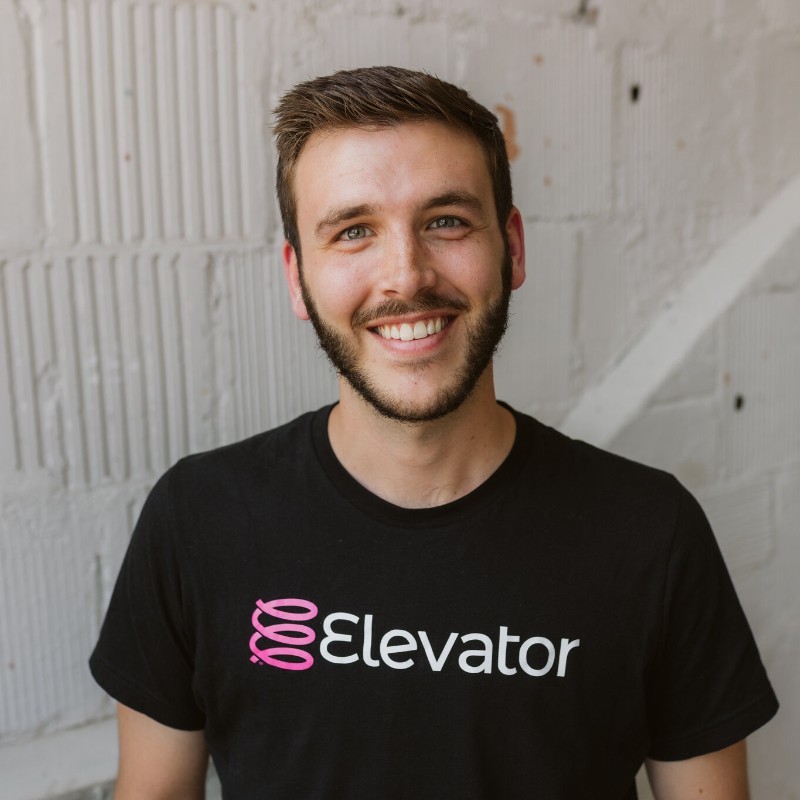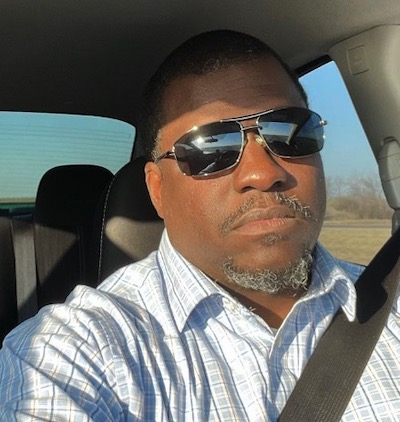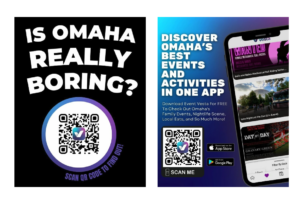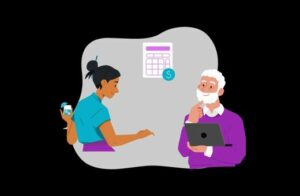In this post, we share some key takeaways from an inspiring conversation with Alessia Priolo. Alessia is an event and marketing professional with a passion for exploring the intersection of VR for events and the music industry.
In November, she hosted Immerse MTL: A Live Music Concert in the Metaverse. The event was an immersive mixed reality event featuring regional musicians. She decided to organize a VR music event as part of Sincop8ed Noize Foundation‘s mission to support emerging musicians. Her work as a professional event planner also contributed to a desire to experiment with new event formats.
In this post, we explore her motivations, the unique aspects of the VR for events in the music industry, and the exciting possibilities for VR events.
Embracing VR for Events in the Music Industry
Alessia acknowledges that producing a VR event can be costly, making it inaccessible for many artists due to limited budgets. She believed that there is real opportunity in the accessibility of VR events. She also saw opportunity in a growing crowd of people hungry for new use cases for their VR headsets.
The event incorporated VR technology in a way that looked to captivate both in-person and online audiences.
These types of events are an uncharted territory. They can be risky. Alessia pushed ahead and demonstrated a dedication to pushing the boundaries. By doing so, she has created a pathway to be a VR event planner.
Alessia shared that it was a boost to the promotion of the event. Not only does it expand the access of the event, but it also has a built-in audience. There are communities online that you can tap into. On places like Reddit, there are people seeking upcoming VR events to attend through their headsets. They often spent a lot of money on those VR headsets, so they want to experience as much as they can through them.
The Immersive VR Experience
Through live streaming the VR event, Alessia offered viewers a unique and immersive experience. The VR aspect provided a 360-degree view, allowing participants to explore the virtual environment and feel as though they were physically present. While VR headsets enhanced the experience, Alessia also ensured that those without headsets could still enjoy a 360-degree view using their mobile devices. By leveraging the scarcity of VR content and catering to the growing demand for captivating experiences, Alessia successfully created a buzz around the event.
They used YouTube’s streaming and VR capabilities because it was cost-effective to setup and accessible to most people with a VR headset. It also made the live stream available to those without a headset. You can still watch it on your desktop computer or mobile phone. While not as immersive, you can see experience some of the 360-degree effect.
Accessibility Benefits of VR for Events
One of the most significant accessibility benefits of VR is that it can provide access to events for people with disabilities. For example, people who are blind or have low vision can use VR to experience events in a way that they would not be able to otherwise. VR can also be used to provide access to events for people with mobility impairments, as it allows them to participate in events without having to leave their homes.
In addition to providing access to events for people with disabilities, VR can also help to create a more inclusive environment for all attendees. For example, VR can be used to provide closed captioning or translation services for attendees who are deaf or hard of hearing. VR can also be used to create educational experiences that are accessible to people of all ages and abilities.
Overall, VR offers a number of accessibility benefits for events. By using VR, event organizers can create a more inclusive and engaging experience for all attendees.
Here are some additional details about the accessibility benefits of VR for events:
- People with disabilities can experience events in a way that they would not be able to otherwise. VR can be used to provide a virtual tour of an event venue, which can be helpful for people who are blind or have low vision. VR can also be used to provide live captions or translation services for people who are deaf or hard of hearing.
- VR can help to create a more inclusive environment for all attendees. VR can be used to provide educational experiences that are accessible to people of all ages and abilities. VR can also be used to create social experiences that allow people to connect with others regardless of their physical location.
- VR can help to increase engagement and participation at events. VR can be used to create immersive and engaging experiences that will keep attendees interested and engaged. VR can also be used to provide hands-on learning experiences that will help attendees to better understand the topics being discussed.
If you are planning an event, consider using VR to enhance the experience for all attendees. VR can help to create a more inclusive, engaging, and educational event for everyone.
Overcoming Challenges and Driving Innovation
Alessia acknowledges the inherent challenges of VR technology and the evolving nature of the metaverse. Technical glitches and limitations are a part of the journey toward advancing VR capabilities.
However, she emphasizes the importance of pushing boundaries and driving progress. Alessia’s courage to experiment with VR technology in the music industry provides a catalyst for growth and innovation. By embracing the potential of VR, event professionals can shape the future of immersive experiences and foster new connections between music and technology.
The Future of VR Music Events
Alessia’s VR music event, aptly named “Immerse MTL,” showcased the talents of six artists and was divided into two distinct parts.
The success of the event has fueled Alessia’s excitement and curiosity about the future possibilities of VR in the music industry.
She has created a format that can be replicated by other event promoters and musician. This VR and AR events technology is not limited to big festivals like Coachella. It’s a growing space with a lot of opportunity.
As VR technology continues to advance, Alessia eagerly anticipates how other event professionals will explore and expand the boundaries of immersive experiences. These exciting times offer immense potential for musicians, event organizers, and technology enthusiasts to collaborate and create extraordinary events that push the boundaries of creativity.
Notable VR Events and Mixed Reality Events
Alessia is not the only one implementing VR and AR (Augmented Reality) into their events. Some notable inclusions of this Mixed Reality Technology in events include:
- 2022 Super Bowl halftime show featured a performance by Dr. Dre, Snoop Dogg, Mary J. Blige, Kendrick Lamar, and 50 Cent, all of whom were represented as avatars in a virtual world.
- Cannes Film Festival used AR to create a virtual red carpet experience for attendees. This allowed attendees to see themselves walking the red carpet, and to interact with other attendees and celebrities.
- New York Fashion Week used AR to allow viewers to see the latest fashion trends from the comfort of their own homes. Viewers could use AR to try on clothes, see how clothes would look on them, and learn more about the latest fashion trends.
- World Economic Forum used VR and AR to create a virtual experience for attendees. This allowed attendees to participate in panels and discussions, and to network with other attendees from all over the world.
- Coachella Valley Music and Arts Festival, one of the world’s largest music festivals, introduced a VR experience in 2017. It allowed users to explore the festival grounds, watch performances, and access exclusive content through a VR app.
- Microsoft Ignite, the company’s annual technology conference, has incorporated AR through the use of the HoloLens headset. Attendees can experience holographic demonstrations, virtual presentations, and interactive exhibits, enhancing their overall conference experience.
- The Olympic Games have embraced AR technology in their opening ceremonies. In the 2016 Rio Olympics, for example, projections and AR effects were used to create visually stunning performances, blending virtual elements with live performances.
- Comic-Con, a popular convention for comic books, science fiction, and pop culture, has utilized AR to engage attendees. AR apps allow visitors to interact with virtual characters, view 3D models, and unlock hidden content throughout the convention.
- VR Film Festivals: Several film festivals have included VR experiences alongside traditional film screenings. Festivals like Sundance Film Festival and Tribeca Film Festival have dedicated sections for VR films, allowing attendees to immerse themselves in cinematic VR experiences.
- Art Exhibitions: Art galleries and museums have incorporated AR technology to enhance visitors’ experiences. By using AR apps on their smartphones or tablets, visitors can view digital information, animations, or interactive elements overlaid on physical artworks. In our post on 117 Event Promotion Ideas, we talk about Artivive which allows you to turn your art event into a buzz-worthy Augmented Reality event.
These are just a few examples of how VR and AR technologies have been integrated into various events across different industries. The applications of VR and AR continue to expand, offering innovative and immersive experiences for attendees and participants.
Conclusion on VR for Events
Alessia Pirolo’s bold foray into VR music events has opened up a world of possibilities for the music industry. By embracing emerging technologies, such as VR, event professionals can craft captivating and immersive experiences that engage audiences like never before. Alessia’s dedication to supporting emerging musicians and her willingness to step outside her comfort zone exemplify the spirit of innovation necessary to drive progress.
As we look to the future, the convergence of music and VR holds the promise of truly transformative events that transport attendees into a realm of unforgettable experiences.








